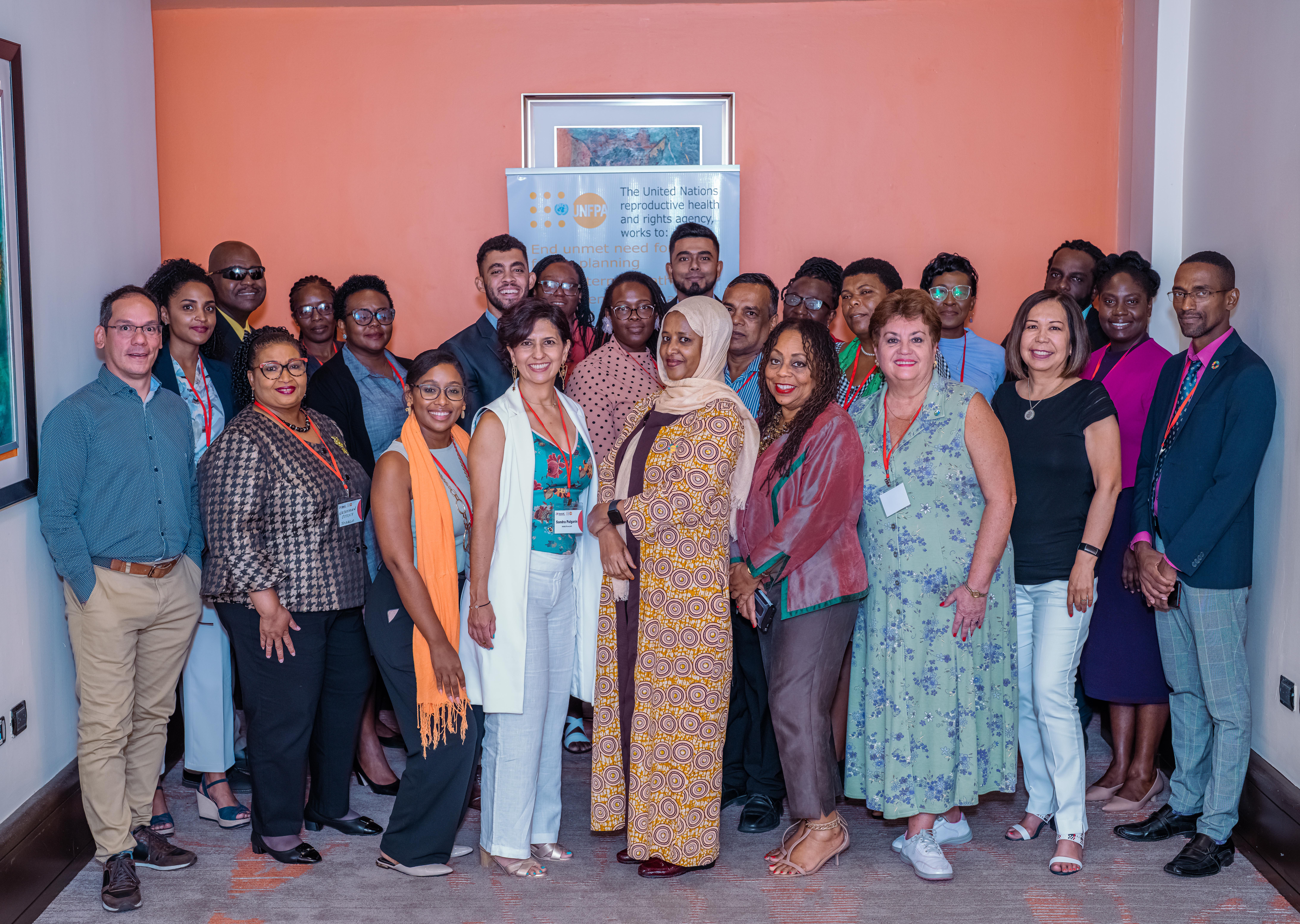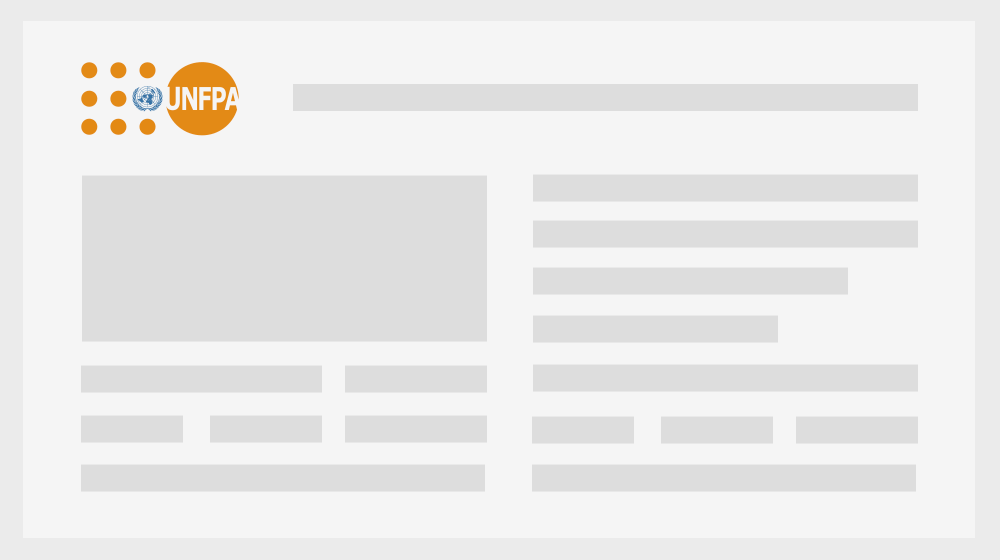Several professionals in the reproductive health field from across the Caribbean recently benefitted from a workshop on Reproductive Health Commodity Security (RHCS). It was organized by the United Nations Population Fund (UNFPA) Sub-Regional Office for the Caribbean in collaboration with the Reproductive Health Supplies Coalition (ForoLAC). Participants included persons charged with reproductive health commodity procurement and supply chain management from Trinidad and Tobago, Jamaica, Guyana, Suriname, Belize, Barbados, Grenada, St. Lucia, St. Vincent and the Grenadines, and Dominica as well as the Organisation of Eastern Caribbean States (OECS).
This pivotal workshop, which took place in June, aimed to address gaps identified in the RHCS Assessment and strengthen the capacities of individuals responsible for implementing RHCS systems. Through collaboration with ForoLAC, the SEPREMI model, a business intelligence tool, was introduced to empower decision-makers and procurers with evidence-based choices. In discussing their common RHCS challenges, delegates from across the region discussed the advantages of the SEPREMI platform for monitoring prices, availability and management, and the impact of medicines and supplies for sexual and reproductive health.
In addition to building the capacity of Ministry of Health staff responsible for reproductive health commodity security using the SEPREMI model, participants were introduced to SALMI, a Logistics Management Information System designed to revolutionize and streamline logistics operations so as to efficiently manage the supply chain, enhance visibility, and optimize decision-making processes.
An additional workshop objective was to disseminate the model regional RHCS Strategy for the English and Dutch-speaking Caribbean countries developed by UNFPA to promote evidence-informed RHCS programming. The strategy, which serves as a comprehensive roadmap for improving access to reproductive health commodities provides a framework that can be tailored to address the specific needs of individual countries. In so doing, it may contribute to the UNFPA transformative results of ending unmet need for family planning and reducing preventable maternal mortality.

Commodity Security hosted by UNFPA SROC.
Through the partnerships, stakeholder engagement and keen interest of the participants demonstrated at the workshop, the groundwork has been laid for fruitful and valuable South-South cooperation for improved reproductive health and sustainable development outcomes for women and girls, men and boys across the Caribbean.
"When I run out of vaccines I go crazy and I must ensure everything is in place. This workshop has made me appreciate the importance of having contraceptives in place all the time. I can now relate to the fact that contraceptives are indeed life saving commodities, if a girl has an unintended pregnancy she can end up having unsafe abortion which can risk her life, " said one Maternal Health coordinator from Tobago.
Caribbean countries face considerable obstacles in ensuring comprehensive reproductive health services for their populations. Studies have shown that a significant number of individuals in the reproductive age group desire to avoid unintended pregnancies, with a staggering 1.4 million of them having an unmet need for modern contraceptives. Reproductive Health Commodity Security (RHCS) plays a vital role in overcoming these challenges by ensuring the accessibility, affordability, and availability of reproductive health supplies for individuals at the right time, in the right place, at the right price, and to the right person. The United Nations Population Fund (UNFPA), as the sexual and reproductive health agency of the United Nations, has a lead role in advancing RHCS and recognizes its significance in improving maternal health, saving lives, and fostering sustainable development. In this context, a recently commissioned RHCS Assessment conducted in selected English and Dutch-speaking Caribbean countries in 2020 has yielded valuable insights.
While laudable progress has been made in certain countries in the development of Sexual and Reproductive Health (SRH) policies, strategies, and operational plans, the integration of RHCS remains inadequate. The Assessment indicated a risk of stock-outs of contraceptives in the region that may lead to potential adverse impacts such as unplanned pregnancies, abortions, and maternal and new-born mortality.
The discussion from the three-day meeting provided useful insights on the next steps towards improving Reproductive Health Commodity Security in the sub-region. The challenges across the region are similar, ranging from poor forecasting and qualification to lack of skills to provide a range of family planning methods to ensure choice. The UNFPA Sub-Regional office will provide technical support to address the key challenges to advance progress towards the three transformative results of ending preventable maternal death, ending unmet need for family planning, and ending gender-based violence.


